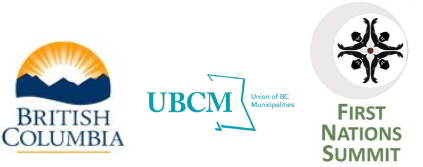CivicInfo Library
Joint Indigenous and Local Government Initiatives and Relations
| A collection of resources related to initiatives, agreements, arrangements, partnerships, and the provision of services between Indigenous governments and organizations, and local governments in British Columbia. |  Service Partner |
Resource 1 of 4 Next >
Indigenous Harm Reduction Program Coming to Kelowna
The City of Kelowna has received $662,433 in funding from the Government of Canada through Health Canada’s Substance Use and Addictions Program (SUAP).
This funding will support a new program that seeks to grow cultural safety within harm reduction services, and reduce the stigma and racism faced by Indigenous peoples and other communities that are marginalized in Kelowna. The program will be delivered in partnership with Urban Matters CCC, the PEOPLE Lived Experience Society, the Ki-Low-Na Friendship Society and other local organizations.
“The ongoing effects of colonialism are intricately linked to the disproportionate impact that overdose and other substance use harms have on Indigenous Peoples,” says the Honourable Carolyn Bennett, Minister of Mental Health and Addictions and Associate Minister of Health. “This investment through SUAP will help the City of Kelowna continue their work to help people access harm reduction services, supplies and support through peer-to-peer connection. By supporting initiatives like this one, we can save lives, improve capacity for healthcare providers in B.C and across Canada, and build a better healthcare system that actively serves the needs of Indigenous Peoples.”
The Knknxtəwix̌ “We walk hand in hand” Indigenous Harm Reduction and Structural Stigma Dialogue with the Healthcare Sector program was developed in partnership with local Indigenous organizations and will roll out over the next two years. It is one of 73 projects Health Canada is funding across Canada through the SUAP program to help address the ongoing toxic drug crisis. In 2021, 7,560 Canadians died due to opioid overdose-related causes and B.C. First Nations people are dying due to toxic drugs at a rate more than five times that of non-First Nations people.
“We are in the midst of challenging times,” says Kelowna Mayor Tom Dyas. “We see it here in Kelowna and across Canada. Action is needed on this issue, so I’m happy to see federal funding for the indigenous-led Knknxtəwix̌ program coming to Kelowna. It’s a step in addressing the barriers Indigenous and other marginalized communities face when accessing harm reduction services. It has the capacity to improve health and wellness, and even save lives.”
Through Knknxtəwix̌, members of the local Indigenous community will share their knowledge, and advocate for and grow Indigenous cultural understanding within the healthcare sector, leading to more culturally-appropriate harm reduction, treatment and recovery services. The program aims to better equip the healthcare system to serve the needs of Indigenous peoples and other marginalized communities.
“Substance use and addictions aren’t exclusively Indigenous issues, but we do see that our Indigenous communities are disproportionately affected by them,” says Edna Terbasket, Executive Director of the Ki-Low-Na Friendship Society. “The impacts of colonization, institutional racism, stigma, oppression, trauma and grief continue to be felt in Indigenous communities. We need to heal the wounds created by our shared colonial history, and the Knknxtəwix̌ program is a step in that direction.”
The program will train and mentor people who have experienced substance use to become Peer Navigators. Peer Navigators facilitate relationships and help connect others with similar experiences to the support services they need. Peer Navigators will be embedded in local social-serving organizations where key support services are provided, and emphasis will be put on recruiting Indigenous people to fill those roles.
Knknxtəwix̌ will create an Indigenous Harm Reduction Team (IHRT), made up of a nurse, social worker and two Indigenous Peer Navigators. The IHRT will deliver harm reduction services, supplies and cultural support to people who use illicit substances. Knknxtəwix̌ will also pilot a decolonizing substance use day program, with local Indigenous Elders, Peers and specialists contributing to its Indigenous-informed substance use recovery curriculum.
“We’ve worked with the City in the past on a similar Peer Navigator project and found a lot of success,” says Wes Zawertailo, Program Manager with the PEOPLE Lived Experience Society. “Our main goal is to find employment opportunities for people with lived experiences, so this program is a perfect fit for us. People who have experience with substance use will work and gain experience as they help connect others with the supports they need. The Peer Navigators will also be sharing their unique experiences and expertise, helping shape and improve our healthcare system.”